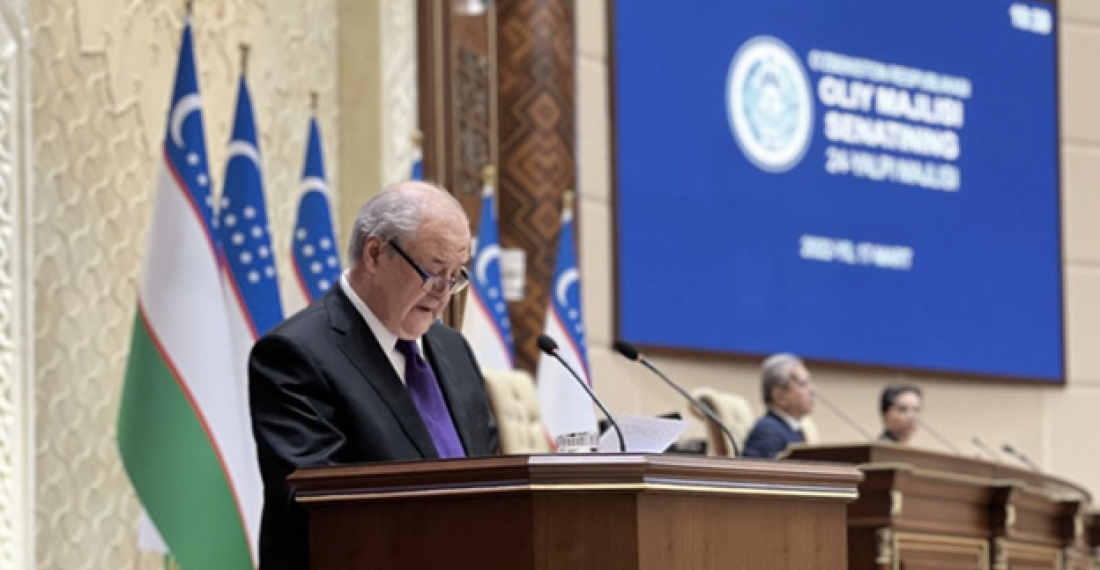Uzbekistan became the first country in Central Asia to categorically reject the declaration of independence by the breakaway republics of Donetsk and Luhansk, who were recently recognised by Russia as independent states.
In a speech to the Senate on 17 March, Uzbekistan’s Foreign Minister, Abdulaziz Komilov, called for a peaceful solution to the conflict in Ukraine. “We support pursuing a peaceful solution for this situation and to settle this conflict by political and diplomatic means. For that to happen, it is necessary first to bring an end to the military activities and aggression.” The Foreign Minister also stated that Uzbekistan does “not recognize Donetsk and Luhansk as independent republics.”
By not recognizing the states of Donetsk and Luhansk, Uzbekistan became the only country in Central Asia, a region that has deep economic and political ties with Russia, to publically disassociate itself from Russian actions. While Kamilov did not outright blame Russia for starting the conflict, the clear statement against aggression and military activities reveals Uzbekistan’s position. While Uzbekistan is not as dependent on remittances from Russia as other Central Asian countries, remittances from the millions of Uzbek workers that migrate to Russia every year still forms 11.6% of its GDP.
Central Asian countries have been, until the statement by Kamilov, remarkably quiet on the issue. Kazakhstan did not take a position on the legal status of Donetsk and Luhansk, nor did other Central Asian countries, preferring to adopt a non-committal approach that balanced both domestic and international outrage at Moscow’s military actions with their economic reliance on Russia.
As a result of Central Asian ties to Russia, countries in the region “do not want to anger [Russia]. But at the same time, there is not a single Central Asian country that can support Russia's actions toward Ukraine, as that would indirectly legitimize Moscow's attempts to interfere in their own internal affairs,” a fellow from the Carnegie Moscow Center, Temur Umarov, wrote. Uzbekistan, unlike other Central Asian countries, is not a member of either the Eurasian Economic Union and the Collective Security Treaty Organisation, and therefore has additional leeway with its foreign policy regarding Russia, allowing it to take a clear stance of non-recognition of the Donetsk and Luhansk breakaway republics.







